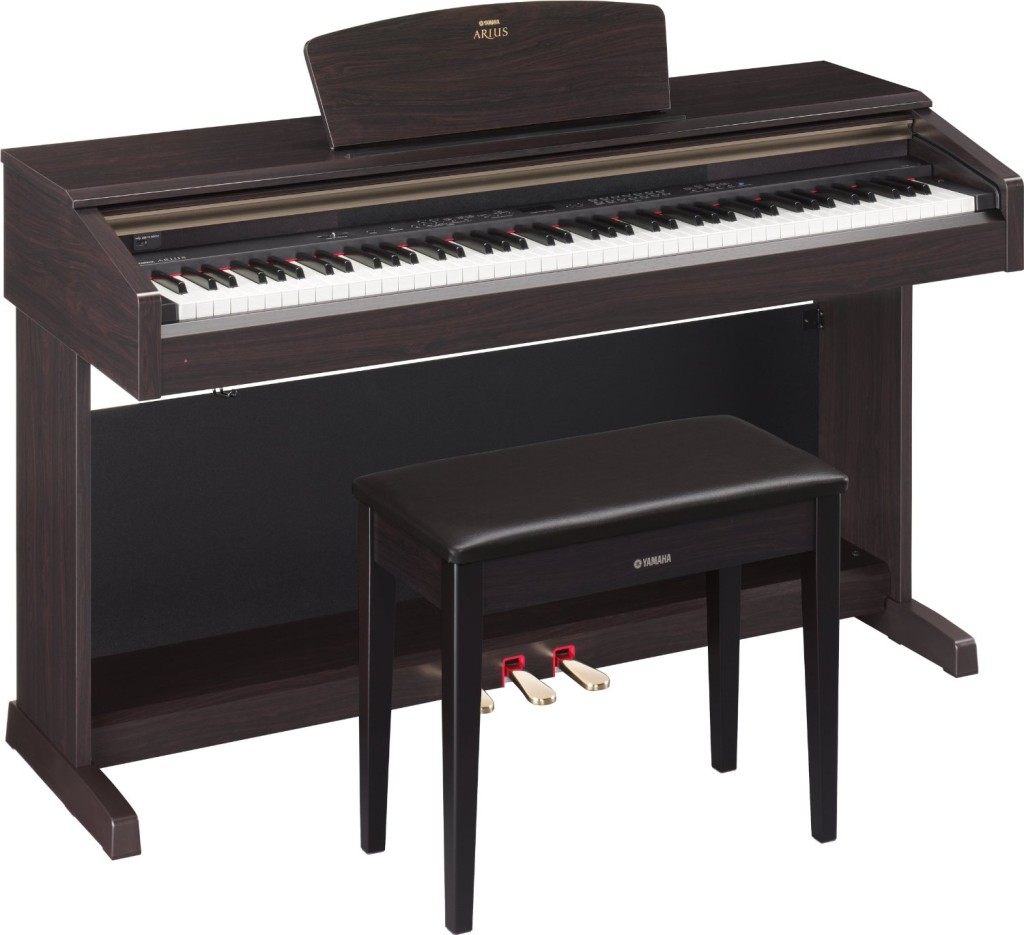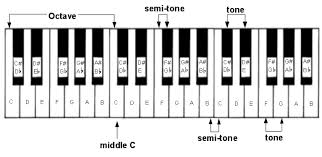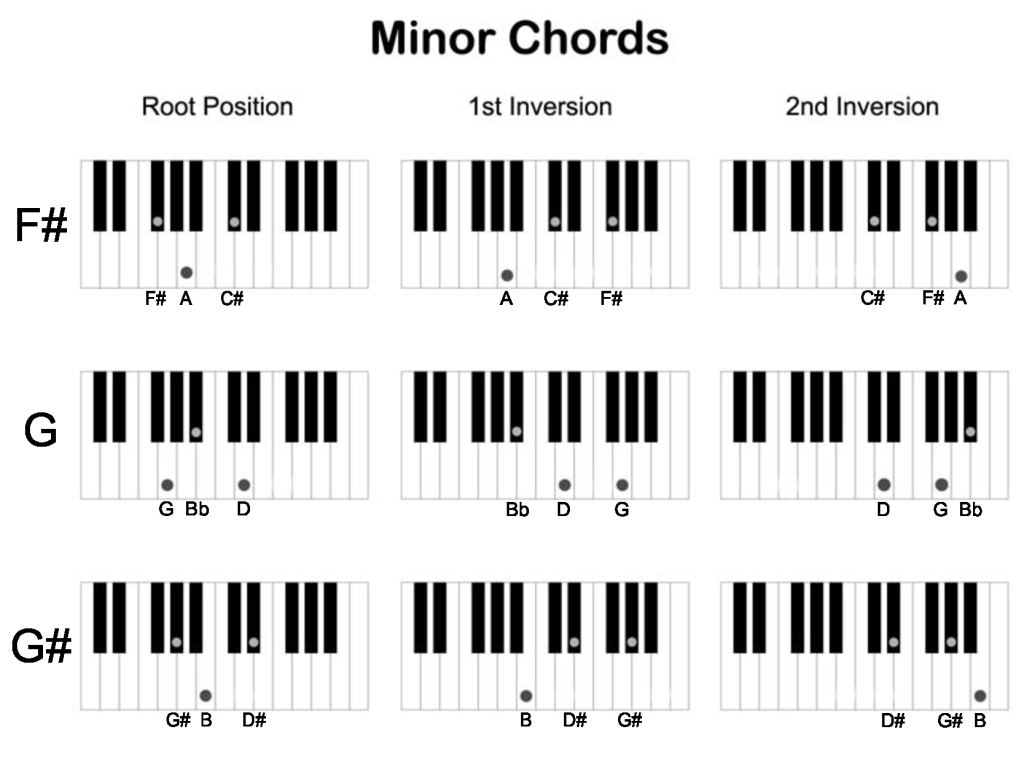This guide is for anyone who always wanted to learn how to play the piano but hasn’t yet. If you’re not a musician then the journey will be so much more fun and easy than you ever imagined. We’ve put this guide together to make sure that anyone with the desire to pick up this wonderful musical instrument has all the information he needs in one place. We’re going to take a detailed look at the exact steps that lay between now and mastering the piano. We think it’s possible to teach yourself piano by following simple guidelines.
Before ever starting to learn to play the piano, most people operate under false assumptions:
- They believe they’re too old to learn how to play a musical instrument;
- They believe they lack musical talent and that they’re not all around musical people;
- They think they have to learn to read music to have any chance of playing an instrument;
- They believe it will take far too much effort and time to overcome these obstacles.

Guess what, after starting to learn a few things, most beginners say they couldn’t have been more wrong regarding their initial concerns.
If your main concern is the lack of musical talent, then you should be relieved because it’s not something you necessarily need.
All you actually need is time and dedication to the cause. Truth is, it’s not as easy as a walk in the park, but if you set aside a few hours and insist on the new skill, you will be able to play some easy songs a lot sooner than you think. After making some progress, chances are high that you’ll share our opinion, that learning to play the piano is one of the most important decisions that you ever made.
Learning how to play the piano, and any other musical instrument, brings many advantages with it:
 It’s a great way to relax and disconnect from anything happening around you.
It’s a great way to relax and disconnect from anything happening around you.- Your attractiveness factor will skyrocket, no matter what your race, sex, or birth year is.
- You’ll be able to enter a community of peers that is very dynamic, fun and creative; just like you would learn a foreign language.
- You’ll start to listen to music differently. You’ll notice what’s going on in a song, and slowly but surely start to make your own music.
- Learning to play a musical instrument makes it easier to learn how to play another.
Teaching Yourself Piano
We’re not going to lie to you, teaching yourself piano is not easy. If it was easy, everybody would be a piano virtuoso. It takes some consistency and patience. Once you have everything in place, you should be seeing significant progress after about 12 hours.
Most people don’t know where to start this journey, so we’ve decided to share the information we gathered on mastering the piano in 3 easy steps:
Step 1: Owning a piano
Before actually starting some practical exercises you will need something to practice on. It’s not enough to go to a teacher’s place for lessons.
Learning to play a musical instrument takes a lot of practice. It’s just like learning to ride a bike. It takes some time until you get to the point where you develop a connection. You will need to practice further, but up until that point you will have to find a way to work this into your daily routine.
As you may already know, pianos come in 2 versions: acoustic and digital. Acoustic pianos are extraordinary but they have some disadvantages like size, weight, price and maintenance costs. The initial enthusiasm could blind anyone towards some of these disadvantages, but after that initial phase passes, you’ll probably notice yourself that an acoustic piano is not the most convenient option. A great option for acoustic pianos are digital pianos.

Digital pianos don’t have the need to be tuned regularly, are more compact and offer many features that make them one of the most versatile musical instruments. With the development of technology, digital pianos have come to a stage where they can emulate the sound and feel of acoustic grand pianos. And best of all they come at a fraction of the price of an acoustic model.
Digital pianos are hands down the best option you have if you want to learn how to play the piano. You now have 2 further options: used digital pianos or new ones. We generally recommend choosing a new digital piano because used models may have a number of disadvantages that you can easily avoid. Above all, with new digital pianos you get higher value for money, as they could cost less than an older model, and be technologically more advanced.
If you think that a digital piano might be the something that could aid your learning experience, you can read our guide on choosing the best digital piano, or you can browse through our in-depth digital piano reviews.
Step 2: Gaining initial knowledge
- Notes – Pianos have seven notes, which are as follows on a keyboard: C – D – E – F – G – A – B

- Keys – Most piano keyboards have 88 keys. There are models that have less keys, but the 88-key models are generally better for anyone learning to play the piano. There are 2 types of keys: white keys and black keys. White keys are called naturals, because they make natural sound. Black keys are called accidentals, because, you guessed it, when pressed they make flat or sharp sounds. On one octave you have 7 naturals and 5 accidentals.

- Chords – A chord is composed of 3 or more musical notes that are harmonic (sound well together) and are heard as sounding simultaneously. The most common chords consist of 3 notes played in tandem, and are called triads. Four of the more basic chord are major, minor, augmented and diminished.

Step 3: Learning to play the piano
- Get the help of a professional. As said before, and we cannot say this enough, teaching yourself piano is one of the most interesting, but also challenging activities that you can start. A piano tutor can make a big difference in your progress. Not everybody is able to learn piano by themselves. And if you feel that you have a hard time getting ahead, maybe a teacher could help a lot. When you get the help of a professional you make sure that you learn properly from the start and that you avoid bad patterns that aren’t easy to unlearn.
- Start a piano course. There’s an abundance of instructional material that you can choose from. You can find many books that teach how to play the piano. A book will take you through the fundamentals: learning to read music, play basic scales, chord progression and simple songs. They’re really affordable, but lack a complete learning experience. What you want to look for is a piano learning program that teaches you everything from A to Z and also contains audio and video material. This way you’re not only going to learn theoretically, but also by seeing how certain passages, key combinations and exercises sound and look like when played in a correct manner.
[leadplayer_vid id=”5432D794E5F73″]
- You can try to play by ear. You will be able to learn by ear some songs, especially if you have a certain native talent for music. By trial and error and through repetition, you’ll be able to play some songs without ever seeing a sheet or knowing how to read one.
A few useful tips before going ahead
- Give yourself the necessary time to learn and don’t forget to have fun. Rome wasn’t built in a day!
- Using both your hands and feet simultaneously seems to be pretty hard in the beginning, but don’t get too hung up on that thought. Start practicing the lines for each hand separately and when you master both put everything together.
- Avoid using the sustain pedal too much when you’re just beginning to learn. As fun as it might seem, you’re actually going to hear a lot clearer what you’re playing and you’re going to easily spot mistakes right from the start.
- Avoid playing a melody with both hands. Usually, your hands will be playing different lines, so getting used to play with both is not necessarily the most useful of habits.
- The most convenient and efficient way to teach yourself piano is going for an online course. There are many great ones, that contain everything you need to know and are designed so you easily understand every step of the way.
You may also like:
